What does Auschwitz look like In the years post-liberation? Together with school students we explore the nature of a warped ideology and it’s scarring of human history. What can we learn to make sure we never experience this again?
Auschwitz remains one of the most powerful symbols to survive World War II. It is estimated that 11 million people died during the Holocaust with more than a million lives taken across the Auschwitz sites alone. It’s been just over 70 years since the survivors, tormented by the conditions at the labour and extermination camps of Auschwitz, were liberated by the Soviet forces advancing west.
We explored the camp, along with students, around the 70th year commemorations. While we’d studied and read and viewed documentaries and dramatisations, nothing would compare with standing with our own feet at the centre of so much evil.
Lives lost but not forgotten
Set about 40 miles west of Krakow, the Auschwitz death camps looked to represent the ‘Final Solution’ for the Nazis. Hoarding together those that did not fit in with the Nazi vision, Auschwitz effectively became a death sentence where gas chambers, shooting posts, inhumane conditions and even severe weather saw lives perish.
The 70 years commemoration is held at the ‘Death Wall’ of Block 11 in Auschwitz I. 300 former prisoners from Auschwitz appeared in what was anticipated to be the last major event where a considerable number of survivors will be able to attend. Wreaths were laid and candles lit at this spot where the cold, grey backdrop of the ‘Death Wall’ is still bruised by the bullets of the small-caliber rifles.
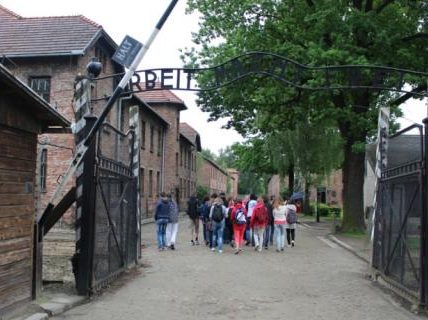
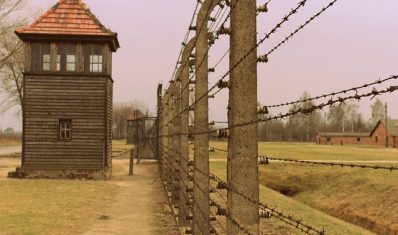
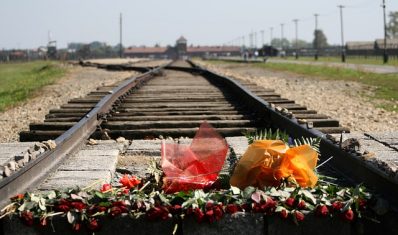
Auschwitz I | Death Wall at Block 11
Walking along the dirt paths of Auschwitz I, among the buildings filled with the belongings of the prisoners including glasses, shoes, luggage, and even hair, and we can’t help but try to imagine the setting during the war years.
Standing in the centre of the camp we try to paint a picture of the atmosphere, the faint shuffle of feet through the dirt, the shout of Nazi officers and even the cold weather that typically strikes the former Eastern Bloc. Yet thankfully, we can never truly feel the reality of this. The pain and suffering would be too much for anyone to take and instead the remains found in the glass displays and pictures of prisoners on the walls, tell the story of lives shattered. The 70 years commemoration was a powerful day of remembrance where the atmosphere among the Auschwitz sites and surrounding area was all the more striking.
Arbeit macht frei – ‘Work makes you free’
The sign arching over the gate remains. It signaled the handover of Auschwitz from army barracks to a labour camp. Constructed by a prisoner, the sign was a false hope. Work for a freedom you should already have. It is a haunting reminder of the operation the Nazis tried to keep in check. Whether arrested or ‘moved for relocation’, those that were rounded up wouldn’t imagine what lay ahead. What the Holocaust continues to teach us to this day, is that such an atrocity cannot happen again.
Students were taken aback by the site of Birkenau (Auschwitz II). The sheer size alone and view from the central watch tower located across the main entrance is staggering. No matter the weather, from the soaring heat of the summer to the bitter blitz of winter, students will learn of the conditions faced in the overflowing huts and train carriages.
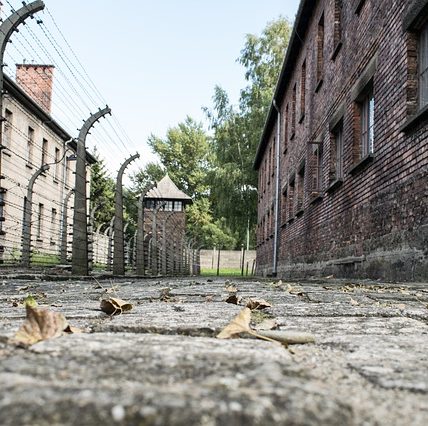
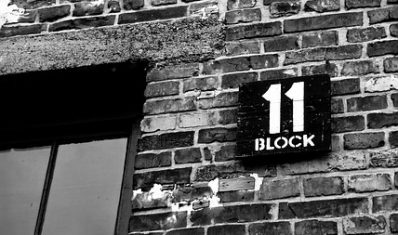
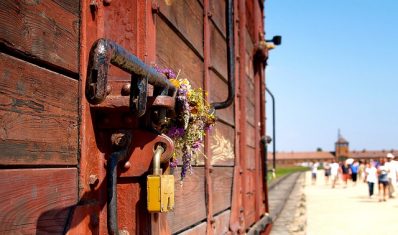
Forever learning from the past
All groups who visit are led around the camp with knowledgeable guides who tend to know someone who suffered through this horrific part of human history. An insight into the operation constructed by the Nazis and cruelly negotiated through the SS (Schutzstaffel) leads to some interesting discussions and questions.
Visiting Auschwitz cannot but raise questions about the events of the Holocaust and lead to further inquiry in the classroom and in the hearts of young learners and teachers alike.

Comments are closed here.